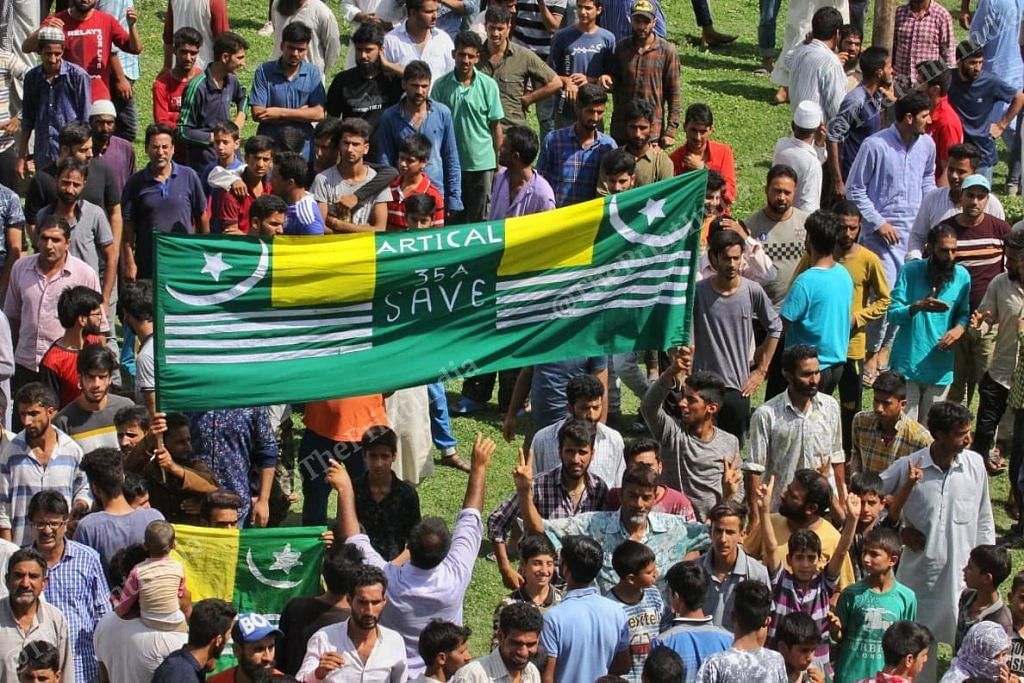New Delhi: The Narendra Modi government has told security and defence agencies to engage more proactively with foreign media, and not shy away, to counter what it sees as “one-sided” reportage by some on the situation in Jammu & Kashmir, ThePrint has learnt.
The government may also ask senior cabinet ministers like External Affairs Minister S. Jaishankar and Minister for Law & Justice, Communications, Electronics & Information Technology Ravi Shankar Prasad to interact more with foreign media, and offer their perspective on various issues relating to the country and the region.
The issue of foreign media coverage in the aftermath of the abrogation of Article 370 was the main agenda of a crucial meeting held this week within the security establishment, where representatives of several ministries participated.
According to sources in the security establishment, it was felt that large sections of foreign media was carrying out “one-sided” reportage on the situation in Kashmir, which was put under a severe communication lockdown after J&K was stripped of its special status in the first week of August.
Also read: From AFSPA to street protests, Modi govt needs new thinking in J&K with Article 370 gone
‘One-sided reportage’
Foreign media reports about a protest in Srinagar’s upscale Soura locality on the first Friday after the removal of Article 370 triggered an official denial from the government, before it eventually blamed the stir on “miscreants”.
“Some of the foreign media has been indulging in one-sided reporting. There are issues that the media will rightly focus on, but it cannot be completely one-sided,” said one of the sources who did not wish to be identified.
“It cannot be agenda-driven to suit one particular narrative. There has to be a holistic approach, and it must take into account the historical facts and the role of Pakistan-sponsored violence,” a second source added on condition of anonymity.
According to the sources, participants at the meeting expressed surprise at the fact that while countries around the world acknowledged Pakistan’s role in supporting terror, its hand in sponsoring violence in Kashmir has not been discussed much in foreign media.
It was noted by the government that when it came to terror attacks in the Valley, foreign media groups, especially the BBC, used terms like gunmen, armed groups and militants, while such attacks in the western world inspired the use of the term “terror”, the sources said.
Developing a thick skin also suggested
According to the sources, deeper engagement with the media portals was one of the numerous proposals discussed to counter such coverage.
Another proposal put forward suggested that India develop a thick skin and ignore foreign media completely, like in the US and China.
However, it was the former proposal that was finally adopted, the sources said, citing the effective use of foreign media by Pakistan in the information warfare that followed India’s Balakot strike on a Jaish-e-Mohammed terror camp.
The defence and security establishment currently stonewalls foreign media houses, and there are strict protocols and procedures to be followed before one meets a foreign national, even if they are journalists.
Agencies prefer that foreign journalists interact with the Ministry of External Affairs.
However, in Pakistan, the publicity wing of the military – the Inter Services Public Relations (ISPR) – has a separate section to engage with foreign media. Regular interactions are also held with senior officers from the military as well as the ISI.
Also read: Upscale Srinagar neighbourhood in viral BBC video is the new protest hub on Article 370
This is an updated version of the report
